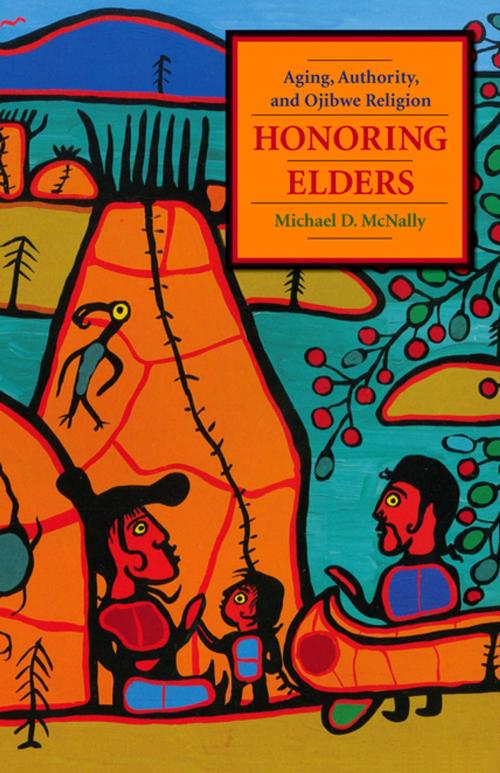Honoring Elders
Aging, Authority, and Ojibwe Religion
Nonfiction, Social & Cultural Studies, Social Science, Anthropology, History, Americas, United States, Religion & Spirituality| Author: | Michael D. McNally | ISBN: | 9780231518253 |
| Publisher: | Columbia University Press | Publication: | August 6, 2009 |
| Imprint: | Columbia University Press | Language: | English |
| Author: | Michael D. McNally |
| ISBN: | 9780231518253 |
| Publisher: | Columbia University Press |
| Publication: | August 6, 2009 |
| Imprint: | Columbia University Press |
| Language: | English |
Like many Native Americans, Ojibwe people esteem the wisdom, authority, and religious significance of old age, but this respect does not come easily or naturally. It is the fruit of hard work, rooted in narrative traditions, moral vision, and ritualized practices of decorum that are comparable in sophistication to those of Confucianism. Even as the dispossession and policies of assimilation have threatened Ojibwe peoplehood and have targeted the traditions and the elders who embody it, Ojibwe and other Anishinaabe communities have been resolute and resourceful in their disciplined respect for elders. Indeed, the challenges of colonization have served to accentuate eldership in new ways.
Using archival and ethnographic research, Michael D. McNally follows the making of Ojibwe eldership, showing that deference to older women and men is part of a fuller moral, aesthetic, and cosmological vision connected to the ongoing circle of life-a tradition of authority that has been crucial to surviving colonization. McNally argues that the tradition of authority and the authority of tradition frame a decidedly indigenous dialectic, eluding analytic frameworks of invented tradition and naïve continuity. Demonstrating the rich possibilities of treating age as a category of analysis, McNally provocatively asserts that the elder belongs alongside the priest, prophet, sage, and other key figures in the study of religion.
Like many Native Americans, Ojibwe people esteem the wisdom, authority, and religious significance of old age, but this respect does not come easily or naturally. It is the fruit of hard work, rooted in narrative traditions, moral vision, and ritualized practices of decorum that are comparable in sophistication to those of Confucianism. Even as the dispossession and policies of assimilation have threatened Ojibwe peoplehood and have targeted the traditions and the elders who embody it, Ojibwe and other Anishinaabe communities have been resolute and resourceful in their disciplined respect for elders. Indeed, the challenges of colonization have served to accentuate eldership in new ways.
Using archival and ethnographic research, Michael D. McNally follows the making of Ojibwe eldership, showing that deference to older women and men is part of a fuller moral, aesthetic, and cosmological vision connected to the ongoing circle of life-a tradition of authority that has been crucial to surviving colonization. McNally argues that the tradition of authority and the authority of tradition frame a decidedly indigenous dialectic, eluding analytic frameworks of invented tradition and naïve continuity. Demonstrating the rich possibilities of treating age as a category of analysis, McNally provocatively asserts that the elder belongs alongside the priest, prophet, sage, and other key figures in the study of religion.















